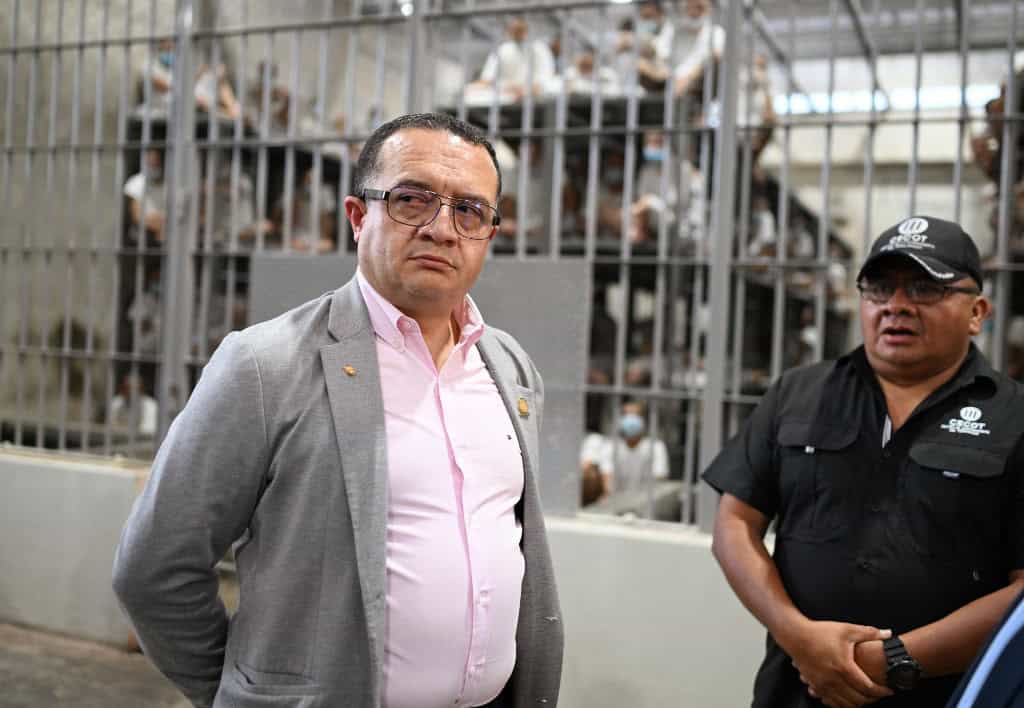As gang-driven violence surges, Costa Rica’s Justice Minister toured El Salvador’s maximum-security mega-prison on Friday, seeking solutions in President Nayib Bukele’s controversial tactics despite their harsh conditions and human rights backlash.
Costa Rica, once Central America’s safest nation, is battling a record homicide rate of 17.2 per 100,000 in 2024, fueled by drug trafficking and organized crime. On April 4, 2025, Justice Minister Gerald Campos visited El Salvador’s Terrorism Confinement Center (Cecot) to explore its hardline approach.
From a corridor, Campos observed tattooed gang members ordered to strip off their shirts, revealing the stark reality of Cecot’s 15,000 inmates—mostly from Mara Salvatrucha (MS-13) and Barrio 18. “We are going to take all the good practices and see how we can bring them to a good conclusion in our legal system,” Campos told journalists.
Opened in 2023, Cecot epitomizes Bukele’s “war” on gangs, housing prisoners in concrete cells with steel cots and no mattresses. A state of emergency since 2022 has led to 86,000 arrests, though 8,000 were later released as innocent. Salvadoran Justice Minister Gustavo Villatoro, hosting Campos, dismissed human rights critics: “We have told them to go to hell.”
Campos also stressed the need for prison reform. “We need to build new prisons in line with the level of crime our countries are experiencing today,” he said, signaling potential shifts for Costa Rica, which has faced criticism for detaining 200 U.S.-deported migrants in a border shelter.
The visit follows growing ties between the nations. Months ago, Costa Rican President Rodrigo Chaves awarded Bukele a diplomatic honor, praising his security record. Yet, Chaves’ divided Congress may limit adopting Bukele’s model, unlike El Salvador’s unified government.
Cecot’s international role was evident too. Over 200 Venezuelans, deported by the U.S. in March under a $6 million deal with Bukele, are held there, accused of ties to the Tren de Aragua gang. On March 26, U.S. Secretary Kristi Noem visited, warning migrants of ending up in Cecot if they crossed into the U.S. illegally.
Human rights groups decry Bukele’s tactics, citing torture and lack of due process. For our country, long a light of democracy, balancing such measures with its traditions poses a dilemma as it confronts its escalating crisis.






